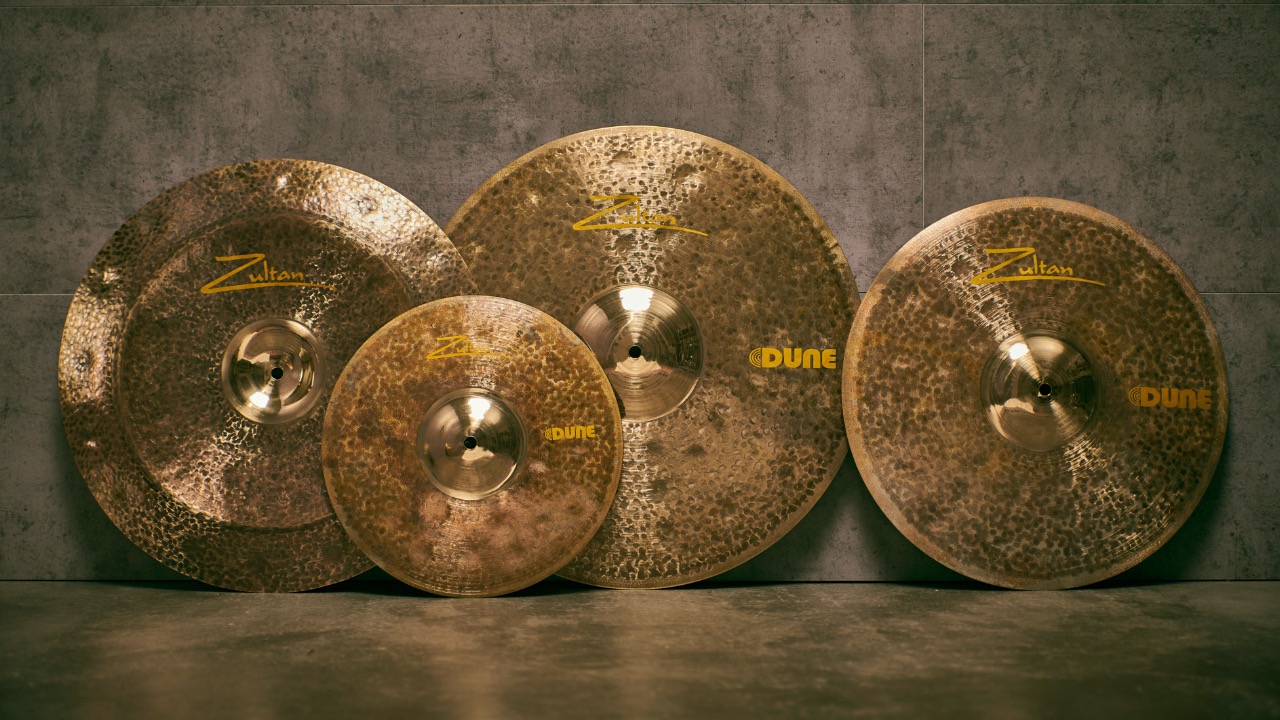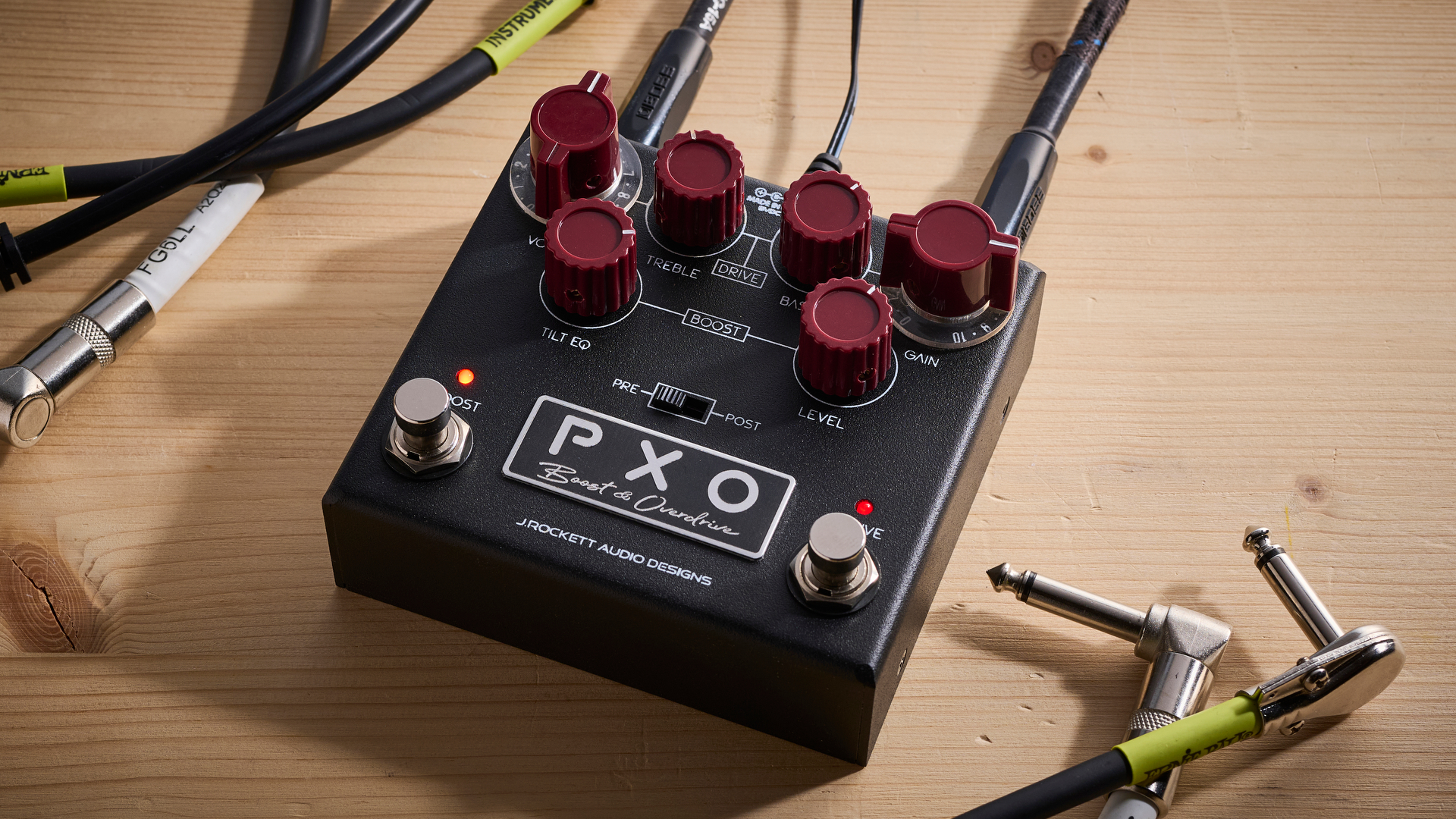MusicRadar Verdict
While the Dune series isn’t going to be the all-round chameleon in your cymbal setup, these cymbals do work well for a number of styles. If you’re looking for dark, slightly trashy cymbals to use for jazz, blues and funk, the hi-hats and ride will serve you well. Meanwhile, the rest of the range offers some additional colour that will also work well in those same styles, along with contemporary pop and electronic genres. Get the whole set, or pad-out your existing setup for less.
Pros
- +
Trendy, versatile cymbal sounds at a snip
Cons
- -
They’re not ‘do-it-all’ cymbals
MusicRadar's got your back
Zultan Dune cymbals: What is it?
Of all the gear that makes up our kits, the overall personality of our drum sound is formed largely by our choices of snare drums and cymbals. There was a time where the latter was restricted to two or three tiers: professional, intermediate and at the most affordable end, downright awful. Similarly, our options were limited when it came to sizes and types too. But these days it’s a different story, and we don’t have to spend high-end money to get high-end cymbals.
This is largely down to brands such as Zultan, offering the sort of spec and choice that would set you back a premium from more established names, but accompanied with a democratised price tag which puts variety and quality within reach of more and more drummers worldwide.
Testament to this is Zultan’s Dune series, which hops aboard the trend for dry cymbal sounds that brands and ranges such as Meinl’s Byzance Extra Dry and Zildjian’s K Special Dry have popularised. These kinds of cymbals emit sounds that promote stick attack and reduce wash and decay quickly. They are usually described using words such as ‘trashy’, ‘earthy’, ‘dark’, and ‘organic’.
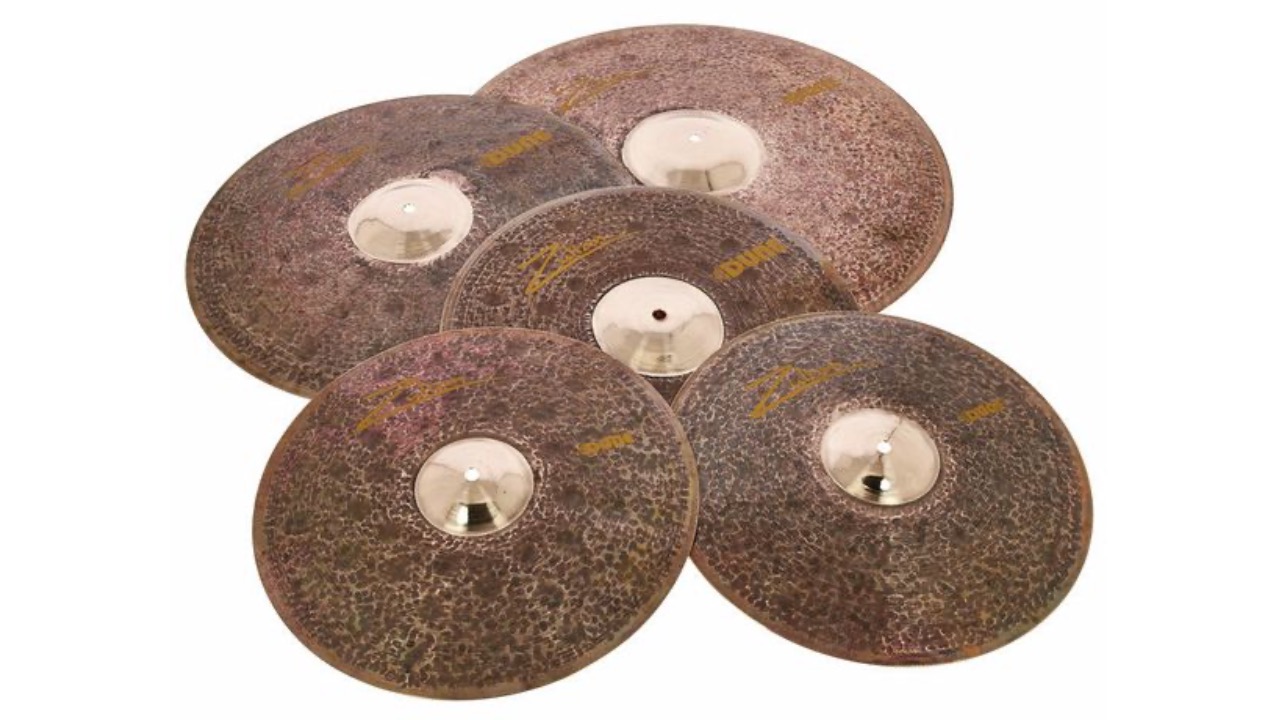
Now, as you probably know already, many premium cymbals are made from B20 bronze alloy, that is, a mix of 80 per cent copper and 20 per cent tin. The result is a smooth, musical blend that sounds great while remaining durable. But the alloy is only part of the story because just as with skinning the proverbial cat, there are many ways to slice a pie.
Dune cymbals start out life as a B20 blank, forged in Turkey. But the same can be said for all but two of Zultan’s ranges (which feature B25 bronze), in fact, the Dune series closely resembles Zultan’s own RAW range, with a key difference. Where the RAW series features hand hammering and a wax finish, the Dune cymbals feature light lathing around the bell, before the rest of the cymbal is hand-hammered with a random pattern across the bow surface. The bell is left un-hammered, as is the edge, and the whole lot is covered in the same protective wax finish.
It’s a push to refer to these as ‘dual’ type cymbals, but we’d expect the additional processing and light polishing to reduce some of the complex, earthy sound of the RAW series, maintaining a similar character but with a little more focus.
The full Dune line-up features three pairs of hi-hats (14”, 15”, 16”), a trio of rides (20”, 21” 22”), three trash crashes and three chinas (16”, 18”, 19”), five crashes (16”, 17”, 18”, 19”, 20”), and a pair of splashes (10” and 12”). Prices start at £72 for the smallest splash, reaching up to £211 for the 16” hi-hats and 22” ride. As well as individual cymbals, the Dune series comes in two pre-configured sets: Standard comprises the 14” hi-hats, 20” ride and 16” crash, while Grand includes the 15” hi-hats, 22” ride plus 16” and 18” crashes. Thomann (who owns the Zultan brand) sent us a cross-section of the whole range including 14” hi-hats, a 17” crash, 18” and 19” trash, 18” china, 12” splash, 22” ride.
Zultan Dune cymbals: Performance and verdict
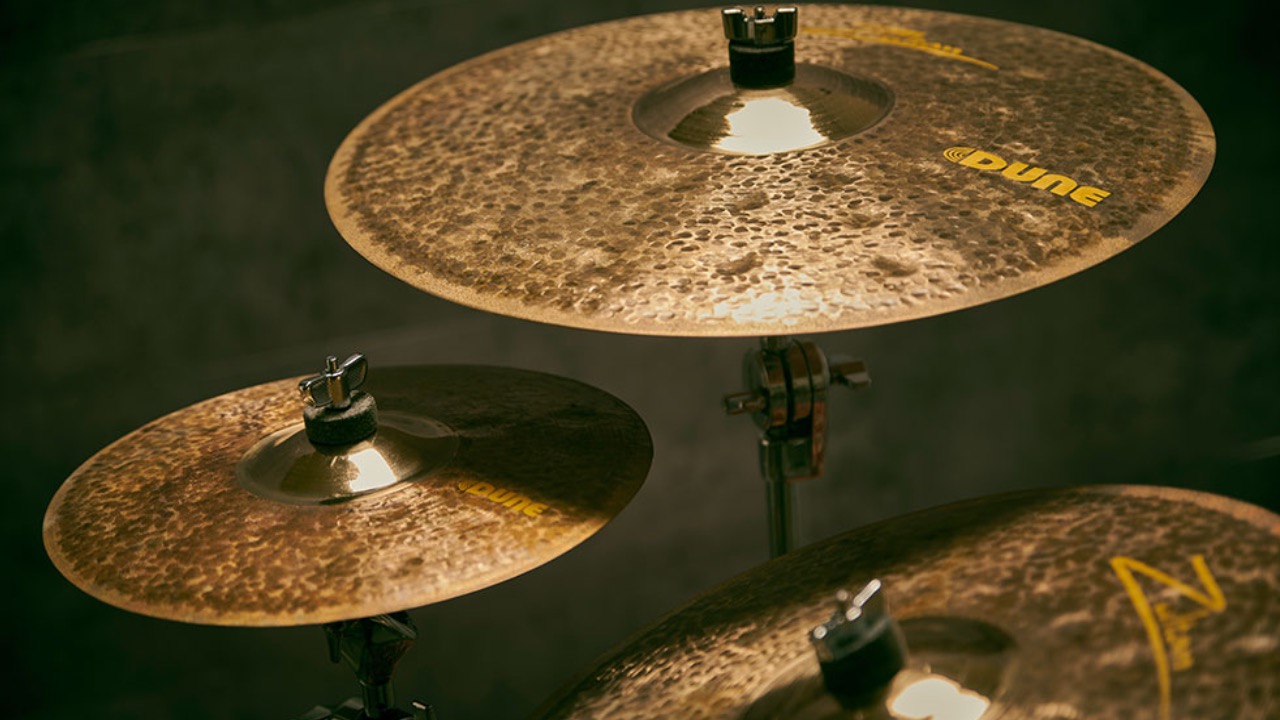
Apparently, you can’t judge a book by its cover. But, as we’ve already touched on, you can get an idea of what a cymbal might sound like based on its design, and the Dune series lives firmly up to our expectations.
The hi-hats have that heavy, typewriter-style chunky fullness to the notes when played closed, and they bark quickly and smoothly when you lift your foot off the pedal. But as we expected, these cymbals are dark and dry.
They’re articulate, with an open sound that works great for accents and a strong, heavy ‘chick’ sound when played with the pedal. The fullness of the sound and pleasing stick response leaves us wondering what the 16” version would sound like.
Because of their dry nature, our 14” review models don’t have the sizzle you might require for say, classic rock covers, nor do they particularly claim to. The dryness does mean that when it’s time to open up against a loud distorted guitar and bass, the lack of brash, sustaining overtones could mean that they get a little lost. However, the other side of that coin is that they excel when playing jazz, funk, hip-hop, and electronic styles.
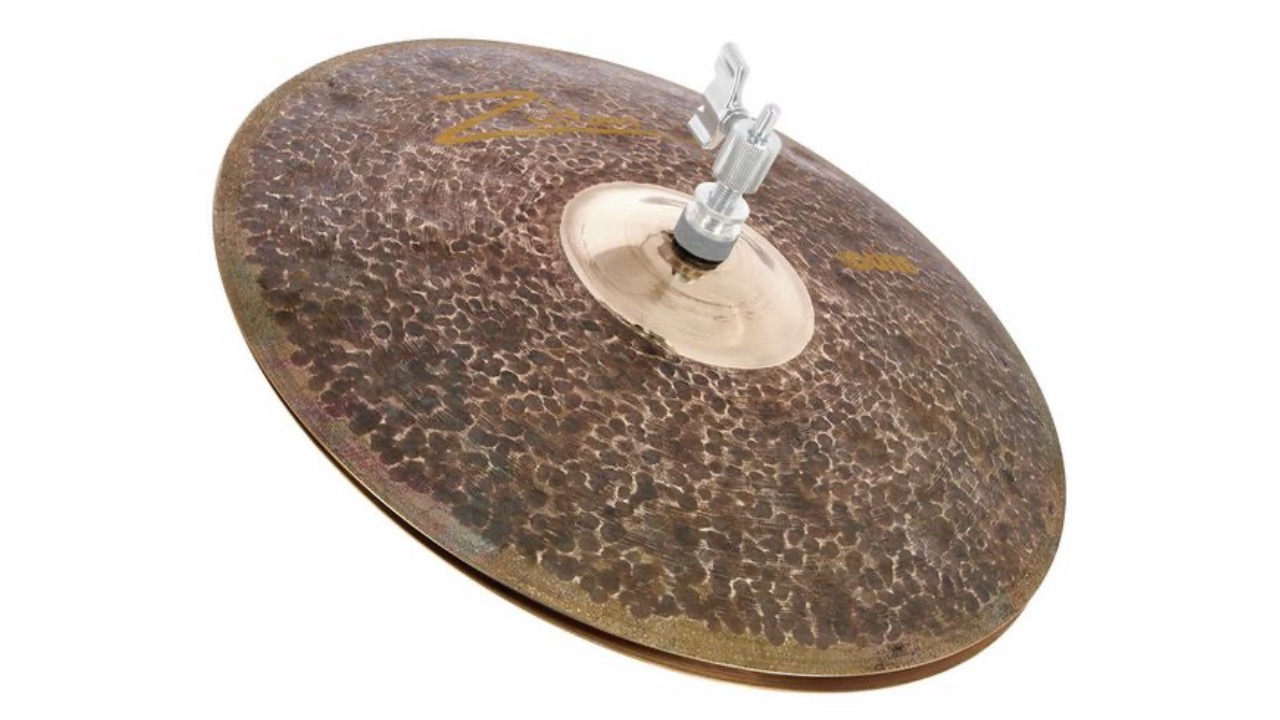
The 22” ride tells a slightly different story, with the added size offering the most complex sound in our review set. It’s still dry, but it’s dark and earthy sounding. Played on the bow, we get great note definition, even at lower volumes, and in the context of a full band setup, there’s just enough sustain when riding on the edge to build up a bit of a wash, and crashing it results in a satisfying, vintage-style noisy explosion.
Sometimes hammered cymbals with ‘brilliant’ polished bells can be a little unbalanced, with a disparity in volume between the playing zones as we jump between tamer bow and overly bright bell accents. But here, there’s a surprisingly smooth transition: it still jumps out, as of course, we’d like it too, but it’s somewhat reserved due to the cymbal’s overall earthier sound and dried-out hammering. Once again, it’ll be a great ride cymbal for playing more ‘organic’ styles - jazz, blues and funk definitely work nicely, but it also extends into the rock world if you’re not looking for something to slice through your bandmates’ amps (and ears).
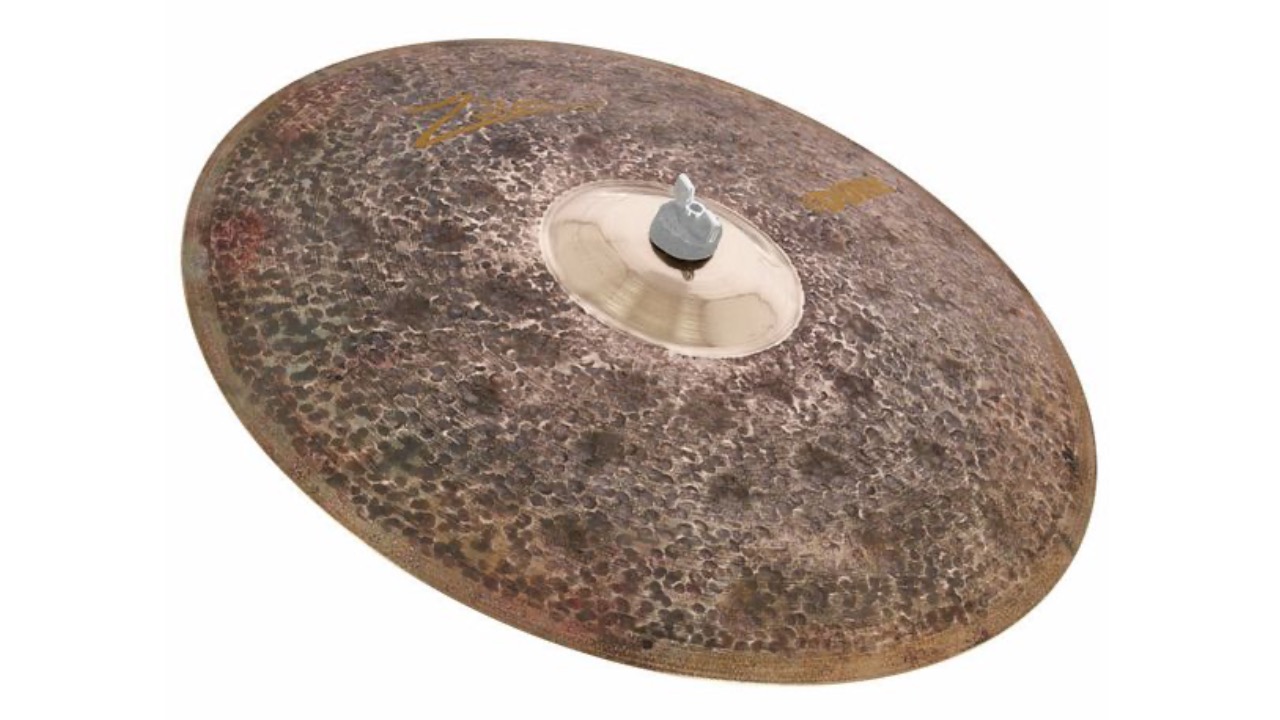
The crashes and trash crashes are possibly the most versatile of the bunch. The regular crash cymbals sound like the dark crash cymbals you know and love, with a traditional sound when you open them up, but there’s an added blip of white noise to them that lends itself nicely to delivering the full weight of the accent, without becoming overpowering.
That character is present even when you’re playing softer hits, which means you don’t really need to wallop them to get them to respond. When you do, you’ll notice that while they get louder, they also start to compress a little - the noisy element is more apparent without becoming fatiguingly loud.
The trash crashes and china are a lot of fun, and very playable for many different styles. Some of our favourite examples of this type of cymbal respond with almost studio-like tonality, and the Dune take on the concept does too. The trash crash takes the white noise element of the ‘traditional’ crashes and ramps it up, and we get a similar response as with the regular crashes in the range.
Hit it at a medium level and you’ll get the slicing burst of noise, hit it harder and it remains smooth, just a bit louder. It’s almost like someone has pre-applied an EQ to give you a pleasing set of frequencies that mean your trashy accents are heard, but without the ear-destroying Mega-Hurts that can come from these types of FX cymbals.
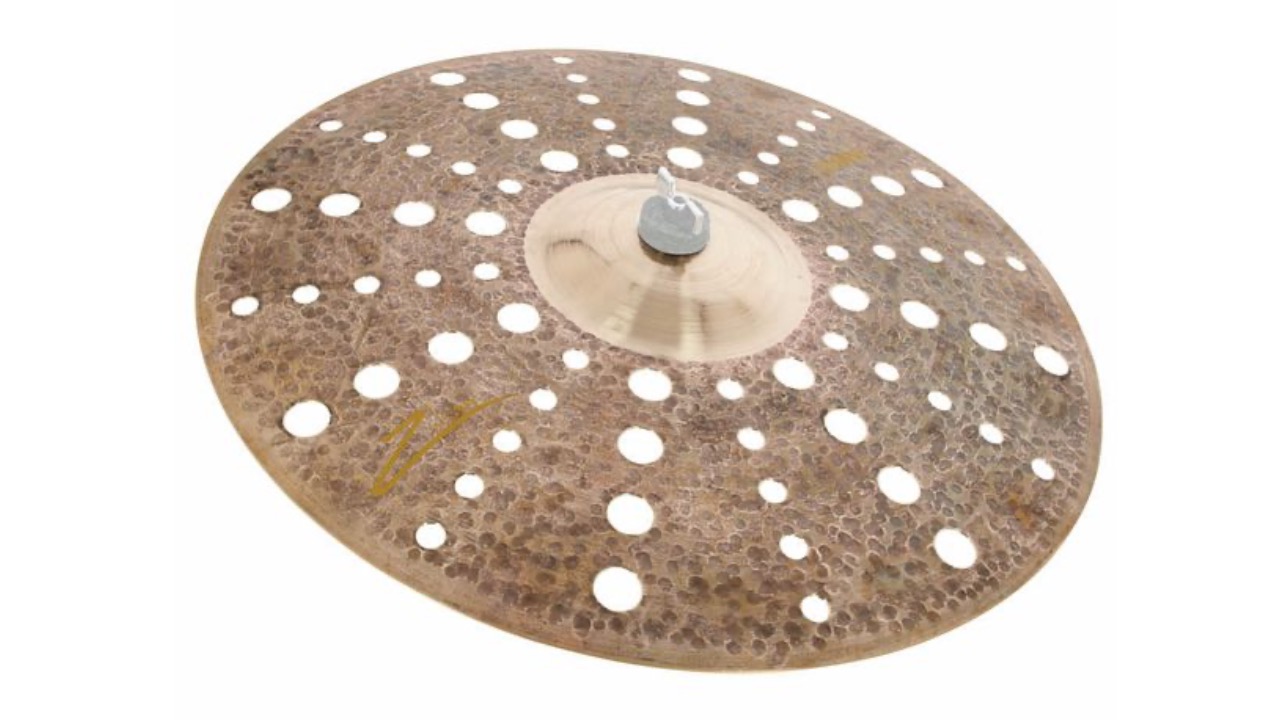
Verdict
Overall, we absolutely love the Dune series. The hi-hats might be a bit more pointed, stylistically, but outside of this, it’s a surprisingly versatile line-up. If you’re playing contemporary jazz, or styles derived from it then the Dune series has a lot to keep you busy. They held their own nestled amongst our Meinl Byzance Extra Dry and Traditional models and played incredibly well when we incorporated them alongside electronic sounds.
But with all that said, the crashes, trash crashes and Chinas will likely work very well in rockier contexts, particularly if you’re playing those styles, but don’t always want overwhelming volume. These are the antithesis of common-or-garden cymbals, but they deliver exactly what you’d hope, at a very affordable price point.
MusicRadar verdict: While the Dune series isn’t going to be the all-round chameleon in your cymbal setup, these cymbals do work well for a number of styles. If you’re looking for dark, slightly trashy cymbals to use for jazz, blues and funk, the hi-hats and ride will serve you well. Meanwhile, the rest of the range offers some additional colour that will also work well in those same styles, along with contemporary pop and electronic genres. Get the whole set, or pad out your existing setup for less.
Zultan Dune: Hands-on demos
Zultan
Drums Bonedo
Specifications
- Alloy: B20 Bronze
- Origin: Turkey
- Ride cymbals: 20", 21", 22"
- Crash cymbals: 16”, 17", 18", 19" 20", 18", 19" 20" Thin Crashes
- FX cymbals: 16”, 18”, 19” trash crashes and chinas, 10” and 12” splashes
- Hi-hats: 14", 15", 16” pairs
- Contact: Zultan

I'm a freelance member of the MusicRadar team, specialising in drum news, interviews and reviews. I formerly edited Rhythm and Total Guitar here in the UK and have been playing drums for more than 25 years (my arms are very tired). When I'm not working on the site, I can be found on my electronic kit at home, or gigging and depping in function bands and the odd original project.
“KIKI BOY 2025”: Frank Ocean appears to be teasing something... or other
“This is great. I knew I was getting to them! I’m so happy. It’s such a good feeling”: Spotify bites back at Kate Nash
“The included sample content is not only unique but sonically amazing, as it always was”: Spitfire Audio BBC Radiophonic Workshop review
